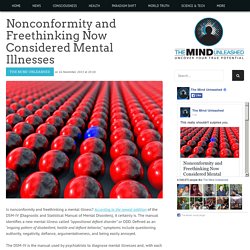

Scientism. Scientism is belief in the universal applicability of the scientific method and approach, and the view that empirical science constitutes the most authoritative worldview or most valuable part of human learning to the exclusion of other viewpoints.[1] It has been defined as "the view that the characteristic inductive methods of the natural sciences are the only source of genuine factual knowledge and, in particular, that they alone can yield true knowledge about man and society.

Scientism may refer to science applied "in excess". The term scientism can apply in either of two senses: To indicate the improper usage of science or scientific claims. This usage applies equally in contexts where science might not apply,[12] such as when the topic is perceived to be beyond the scope of scientific inquiry, and in contexts where there is insufficient empirical evidence to justify a scientific conclusion. Overview[edit] E. Relevance to science/religion debates[edit] Gregory R. Thomas M. Religious fundamentalism could soon be treated as mental illness. Magical thinking. Magical thinking is the attribution of causal relationships between actions and events which cannot be justified by reason and observation.

In religion, folk religion, and superstitious beliefs, the correlation posited is often between religious ritual, prayer, sacrifice, or the observance of a taboo, and an expected benefit or recompense. In clinical psychology, magical thinking can cause a patient to experience fear of performing certain acts or having certain thoughts because of an assumed correlation between doing so and threatening calamities. Magical thinking may lead people to believe that their thoughts by themselves can bring about effects in the world or that thinking something corresponds with doing it.[1] It is a type of causal reasoning or causal fallacy that looks for meaningful relationships of grouped phenomena (coincidence) between acts and events.
Associative thinking[edit] Other forms[edit] Symbolic approach to magic[edit] The Skeptic's Dictionary. Nonconformity and Freethinking Now Considered Mental Illnesses. Is nonconformity and freethinking a mental illness?

According to the newest addition of the DSM-IV (Diagnostic and Statistical Manual of Mental Disorders), it certainly is. The manual identifies a new mental illness called “oppositional defiant disorder” or ODD. Defined as an “ongoing pattern of disobedient, hostile and defiant behavior,” symptoms include questioning authority, negativity, defiance, argumentativeness, and being easily annoyed.
The DSM-IV is the manual used by psychiatrists to diagnose mental illnesses and, with each new edition, there are scores of new mental illnesses. RationalWiki. Santa Muerte Gaining More Prominence in Mexican Culture. Religion Is Disappearing. That’s Great for Politics. - Michael Shermer. Before the rise of the religious right in the 1980s, most politicians kept their faith to themselves.

In 1945, for example, President Harry Truman wrote: “I’m not very much impressed with men who publicly parade their religious beliefs.” After his election in 1953 President Dwight D. Eisenhower joined a Presbyterian church, but when he heard the minister was publicly boasting about his new member the general commanded, “You go and tell that goddam minister that if he gives out one more story about my religious faith I will not join his goddam church!”
John F. Kennedy discussed his Catholicism only when forced to do so by critics during the 1960 presidential campaign. This all changed in the 1980s, when evangelical pastor Jerry Falwell and his Moral Majority (famously characterized as “neither”) convinced Christian politicians that evangelizing for the Lord included knocking on doors within the beltway. Those days might be over. Imagine no religion. Brainwaves, Scientific American Blog Network. A native bee in my backyard (Credit: Ferris Jabr) I have been fascinated with living things since childhood.

Growing up in northern California, I spent a lot of time playing outdoors among plants and animals. God, Darwin and My College Biology Class - NYTimes.com. Should religion be abolished? I’m a Presbyterian Minister Who Doesn’t Believe in God. Why Do Many Reasonable People Doubt Science? There’s a scene in Stanley Kubrick’s comic masterpiece Dr.

Strangelove in which Jack D. Ripper, an American general who’s gone rogue and ordered a nuclear attack on the Soviet Union, unspools his paranoid worldview—and the explanation for why he drinks “only distilled water, or rainwater, and only pure grain alcohol”—to Lionel Mandrake, a dizzy-with-anxiety group captain in the Royal Air Force. Ripper: Have you ever heard of a thing called fluoridation? Fluoridation of water? Mandrake: Ah, yes, I have heard of that, Jack. Martymer 81. Dr. Eben Alexander Proof of Heaven Investigation - Proof of Heaven Factual Omissions. Potter has no recollection of this incident, or of that shouted plea.

What she does remember is that she had intubated Alexander more than an hour prior to his departure from the emergency room, snaking a plastic tube down his throat, through his vocal cords, and into his trachea. Could she imagine her intubated patient being able to speak at all, let alone in a crystal-clear way?